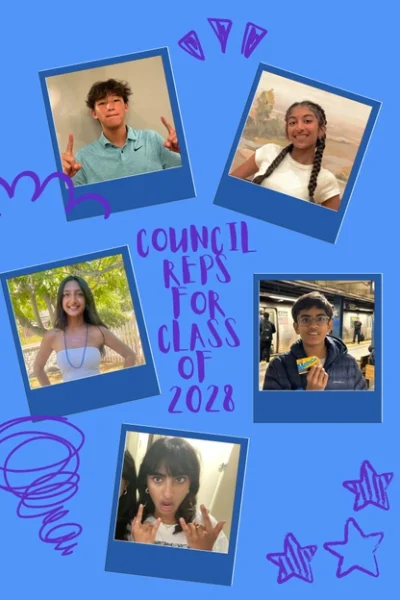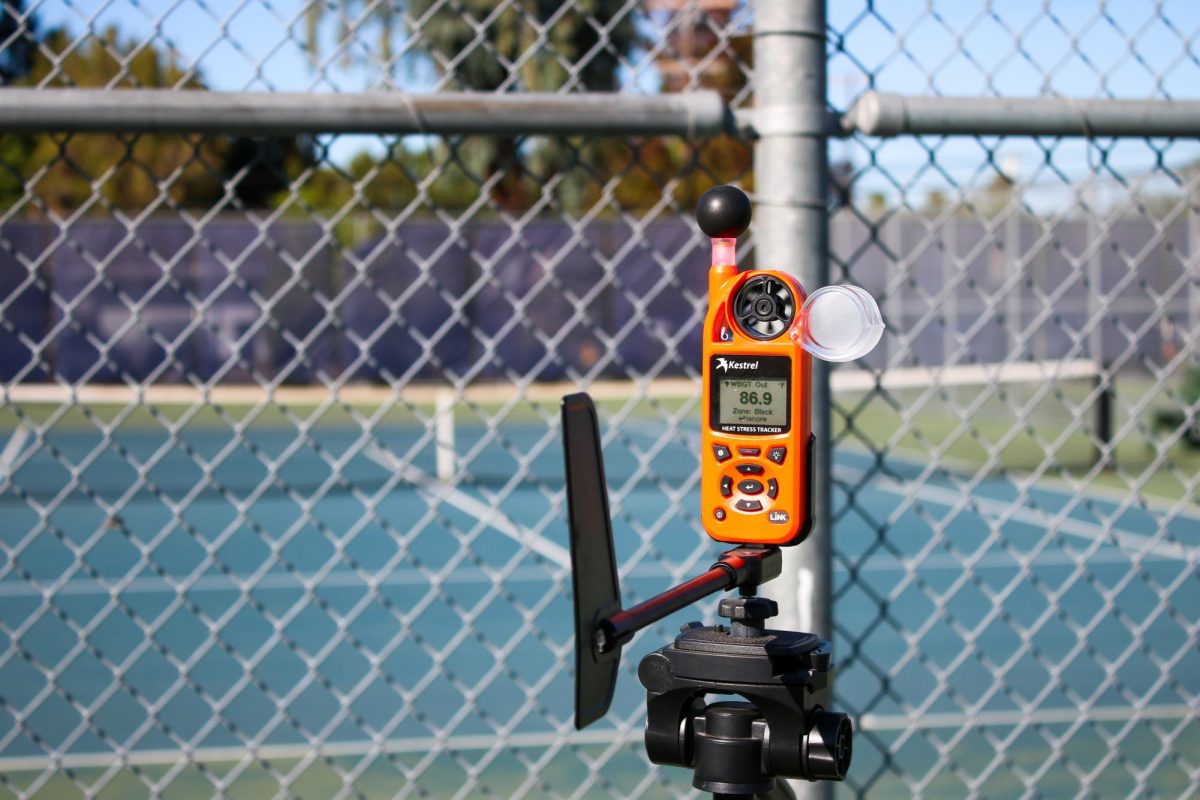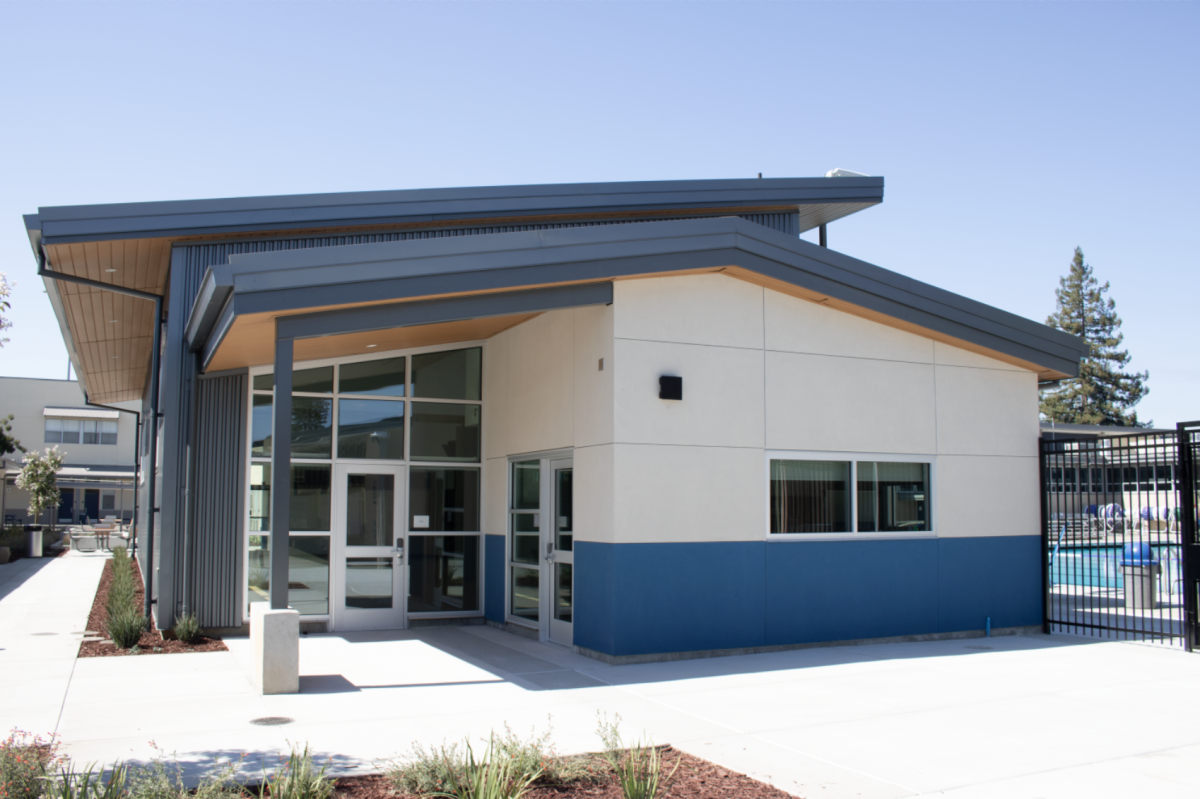Even in a public school, the presence of religion is inescapable. Religious dress, denominational clubs and academic religious conversation make up a landscape of a respectful, albeit cautious acknowledgement of the effects of religious observance in a predominantly secular environment.
In AP English Language, for example, photocopies of Genesis, chapters one through four, littered the desks these past few weeks as juniors worked on analyzing their summer reading, John Steinbeck’s “East of Eden.” Connections were constantly made between characters of the book and biblical characters, such as the brothers Cain and Abel, throughout socratic seminars and in-class discussions.
These discussions might seem unusual for a public school classroom, but according to English teachers at the school, open conversations about religious literature are the hallmarks of a well- balanced curriculum.
“We study religion to understand other cultures,” World Literature teacher Lindsey Regoli said. “And you can’t do that without understanding everyone’s belief.”
Basic knowledge of religious texts is often necessary in order to fully understand the literature studied in class.
“It poses problems [while reading East of Eden] if students are unfamiliar with the stories [in Genesis],” English Department Coordinator Keren Robertson said.
Because the use of literature associated with religious themes is common in all English classes at the school, teachers take measures to ensure that students of all backgrounds do not feel alienated or uncomfortable.
In addition to making sure all students feel included in class discussions, public school teachers are also mandated by law to refrain from declaring religious or political affiliations.
“It’s important to make the distinction between reading religious texts to understand them as part of a theme and me telling kids, ‘Hey, this is what you have to believe,’” Regoli said. “I feel strongly that religion is a personal and family choice.”
According to Regoli, “Cry the Beloved Country,” which she describes as one of her favorite books that she teaches, has the most potential to cause controversy in her classes, because Christian themes are central to an understanding of the book. However, she notes that there have never been any real issues with the novel, as students are generally able to recognize a difference between academic discussion and religious proselytizing.
English teachers are not the only ones who must handle religious discussion with care. According to state science standards, students are required to have a proficient understanding of many aspects of the theory of evolution. At the same time, teachers are challenged with engaging all students, no matter what their beliefs are, in these lessons.
Regardless of what department they belong to, most teachers agree that religious discussion usually does not cause problems at school and that sensitivity and thought are necessary in planning these lessons to ensure that all students feel they are being heard.
“Part of my job as a teacher is to promote that kind of environment where those kinds of conversations are okay,” Robertson said.
The administration uses the same standard to handle school affairs, including those not particularly associated with curriculum. According to Principal Wynne Satterwhite, the school’s default approach is to promote open policies, minds and conversations regarding religion in addition to basic policies outlining the district’s condemnation of religious harassment.
Because of this acceptance of students’ different religious backgrounds, the school’s religious atmosphere is largely based on student initiative. Students’ diverse religious identities have driven the creation of multiple clubs on campus, such as the Jew Crew and the Christian Club.
“I think [the impact of religion] ebbs and flows in terms of who the students are,” Satterwhite said. “It’s the energy, the enthusiasm, the backing that students get [in clubs]… it’s always helped create a more positive atmosphere on campus.”
But that’s not to say there haven’t been issues in the past. In 2004, Broken Box put on “The Laramie Project,” a play about the murder of a gay student in Wyoming. While the administration did support Broken Box and Broken Box Adviser Nancy Moran’s choice of the play, there was concern over potential ramifications of the decision. The minister of the church of which the play is based on was known to send members of his church to protest the performances of this play, and the school was unsure as to whether they would take action against the play.
“The concern was, at the time, [that religious organization] was going to show up and start protesting and making anti-gay slurs and have signs…[but] nothing actually happened like that,” Moran said.
Neither the school nor Moran received any verifiable reason to stop the show and no actual action on campus was made. Moran said that the play turned out well, as the performance didn’t turn out any negative consequences, and attendance increased as students flocked to see what had caused the controversy.
“The awareness that [the] show brought out was tenfold in greatness compared to any bad stuff,” Moran said. “It was packed every night…I thought they pulled it off beautifully.”
Broken Box’s experience with “The Laramie Project” echoes the school’s open-minded approach to religion, as cultivated by teachers and administration at the school.
Throughout the years, the school has tried to maintain its commitment to integrated, universally accessible curriculum and its desire to maintain a respectful campus atmosphere where diverse cultures are welcomed and open religious acceptance is prioritized.








